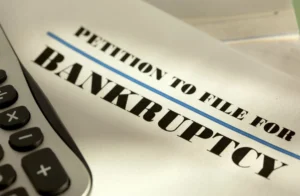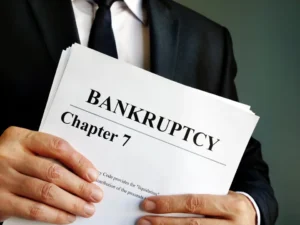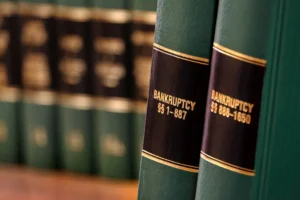Many people who file for Chapter 13 or Chapter 7 bankruptcy are anxious about the effects it may have on their credit score. However, bankruptcy is often an effective plan to be debt-free and improve your credit score. Although bankruptcy does initially hurt your credit, you get a fresh start. Below we’ll explore the effects of bankruptcy on your credit score.
What Happens to Your Score After Filing for Bankruptcy?
Bankruptcy appears on your credit report, and you’re likely to drop to a lower credit score. The length of time that the bankruptcy lingers on your record depends on the kind of bankruptcy you file. A chapter 7bankruptcy, where you don’t repay debts, stays on your record for ten years. A chapter 13 bankruptcy stays for seven years, and you pay some owed debts.
While bankruptcy affects everyone’s credit score, you have more to lose if you have good credit. Your score may only show a slight change if you previously had bad credit. Keep in mind that FICO scores go down to 300,but it’s unusual to see scores below 500.
What Are the Benefits?
While bankruptcy damages your credit score, it also offers you a new chance to rebuild your credit. When you declare bankruptcy, it can be the first step to improve your score and gain trust with lenders.
Firstly, your debt amount reduces significantly after bankruptcy. Thus, it’s more effective than other debt management programs. Also, you get relief as lenders and utility providers won’t report accounts in the bankruptcy as past due or unpaid. Once these positive effects start to reflect on your credit, you’re on course to a better score. Other actions you can take include:
- Pay ongoing debts on time as lenders continue to report your payments to credit reporting agencies. Keep in mind that bankruptcy doesn’t necessarily eliminate all debt. For example, you may still need to keep up with alimony, child support, mortgage, and student loans.
- Check your credit reports frequently to check for errors. Also, ensure that all updates to the debts included in the bankruptcy are on the reports. Additionally, track all changes to your credit score.
- Consider a secured credit card, which requires a cash deposit as collateral. Secured credit cards send your history to credit bureaus, which helps you re-establish your credit. What’s more, you won’t get sent to collections as long your defaulted balance is lower than your deposit.
Will I Have High-Interest Rates After Filing?
Don’t be alarmed if you get a lot of interest from credit card companies after filing bankruptcy. They know you want to rebuild your credit, and you’re likely to pay higher interest rates. Therefore, don’t signup for the first credit card company to approach you. Instead, shop around for favorable rates and use credit cards responsibly.
Similarly, you may get unfavorable loan terms and high-interest rates from car loan lenders, who can reject your application. If you acquire a car loan, it’s a good idea to keep your monthly payments manageable.
When Will My Credit Improve After Bankruptcy?
You can see some improvements one year after filing for bankruptcy if you’re consistent with payments. Typically, a 12 to 18-month period is sufficient to go from poor credit to a fair range of 580 to 669. However, rebuilding your credit is a marathon and nota sprint, and returning to an excellent score takes much longer. As demonstrated, the effect of bankruptcy on your records diminish over time and allow you to reorganize your finances.
Filing for bankruptcy is a consequential decision, and you’ll live with the effects on your credit for years to come. With this in mind, it’s vital to get legal advice to work toward rebuilding your score.
Talk to us at The Madden Law Firm today for questions about bankruptcy.





